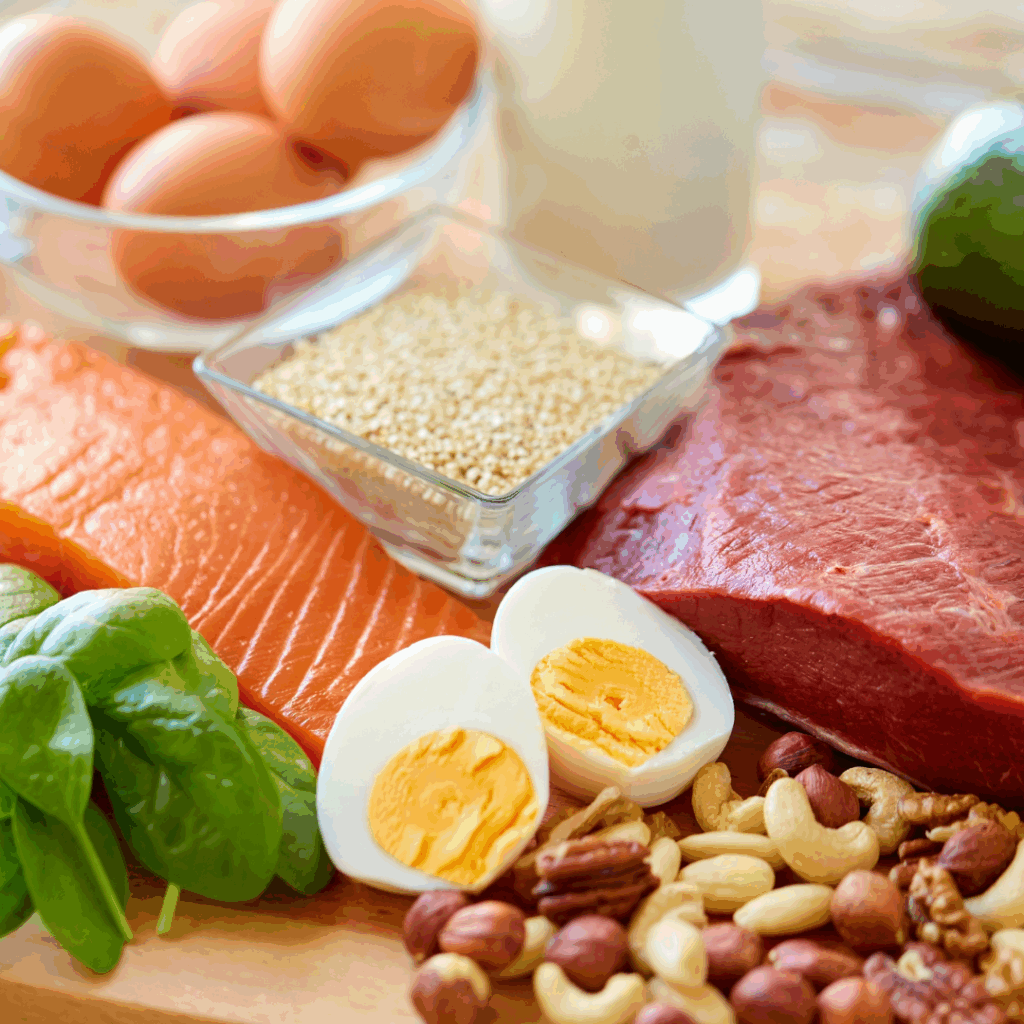Choosing the Right Protein: What to Eat & Common Questions Answered
What Protein is Best for me?
The best protein for you depends on your goals, digestion, and lifestyle, but high-quality complete proteins like lean meats, eggs, fish, dairy, or well-formulated protein powders work best for most people. If you prefer plant-based options, combining sources like legumes, grains, and seeds helps you meet your amino acid needs.
Protein is one of the most important nutrients for your body, it builds muscle, repairs tissues, supports your hormones and immune system, and keeps you feeling full and energized.

But with so many choices out there (animal-based, plant-based, powders, bars…), it can feel confusing to know what kind of protein is best for you. Let’s break it down and answer some of the most common questions we get about protein.
Why is protein important?
- Builds & repairs muscles
- Supports your metabolism & weight loss
- Helps balance blood sugar & control cravings
- Essential for healthy skin, hair, nails, and hormones
Without enough protein, you may feel fatigued, struggle to recover from workouts, lose muscle, and even weaken your immune system.
What are the types of protein?
Animal-Based Proteins
These are considered “complete” proteins, meaning they contain all 9 essential amino acids.
Examples: chicken, turkey, beef, pork, eggs, dairy, fish, and seafood.
Pros:
- High in quality, bioavailable protein
- Naturally rich in iron, zinc, and B12
- Great for building muscle and recovery
Cons:
- Can be higher in saturated fat (choose lean cuts & quality sources)
- Not suitable for vegetarians or vegans
Plant-Based Proteins
These come from plants and can also be excellent though some are “incomplete” and need to be combined for all essential amino acids.
Examples: beans, lentils, tofu, tempeh, quinoa, nuts, seeds, edamame.
Pros:
- High in fiber & nutrients
- Lower in saturated fat & cholesterol
- Supports heart health & gut health
Cons:
- Some plant proteins are lower in certain amino acids (combine grains & legumes for balance)
- Larger portions are often needed to meet your needs
Protein Powders & Supplements
Sometimes convenient when you’re busy or need an extra boost.
Examples: whey, casein, pea, hemp, rice, or blended vegan powders.
Pros:
- Quick & easy
- Great post-workout or on-the-go
- Helps you meet your protein goals
Cons:
- Not a replacement for whole foods
- Some powders contain added sugars, fillers, or poor-quality ingredients, always read the label!
How much protein do I need?
It depends on your body composition, goals, and activity level but here’s a general guideline:
Active adults & those looking to build or maintain muscle should aim for about 0.7–1 gram of protein per pound of lean body mass per day.
For example:
If you weigh 150 lbs and your lean body mass is 96 lbs, you’d aim for roughly 67–96 grams of protein daily, spread throughout your meals and snacks.

Keep in mind: this is just a starting point. Trainers, nutritionists, and healthcare professionals may calculate protein needs differently based on your individual goals and health status. For the best plan, talk to a professional who can tailor it to you!
Ready to optimize your nutrition?
There’s no one-size-fits-all approach, the best protein for you depends on your goals, preferences, and lifestyle.
Focus on whole, high-quality sources (both animal and plant-based), and don’t be afraid to mix it up!
If you’d like personalized guidance on how much protein you need and how to plan your meals, reach out, we’re here to help you build a strong, nourished body from the inside out.